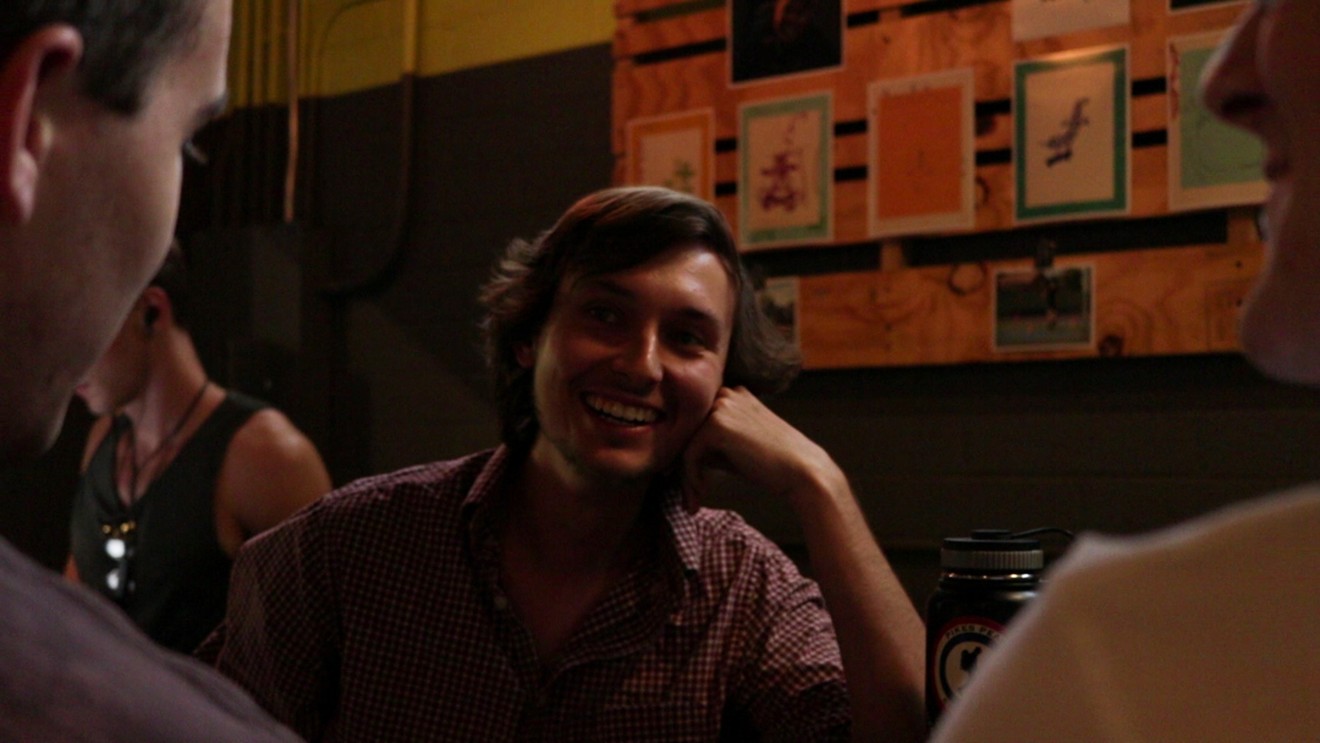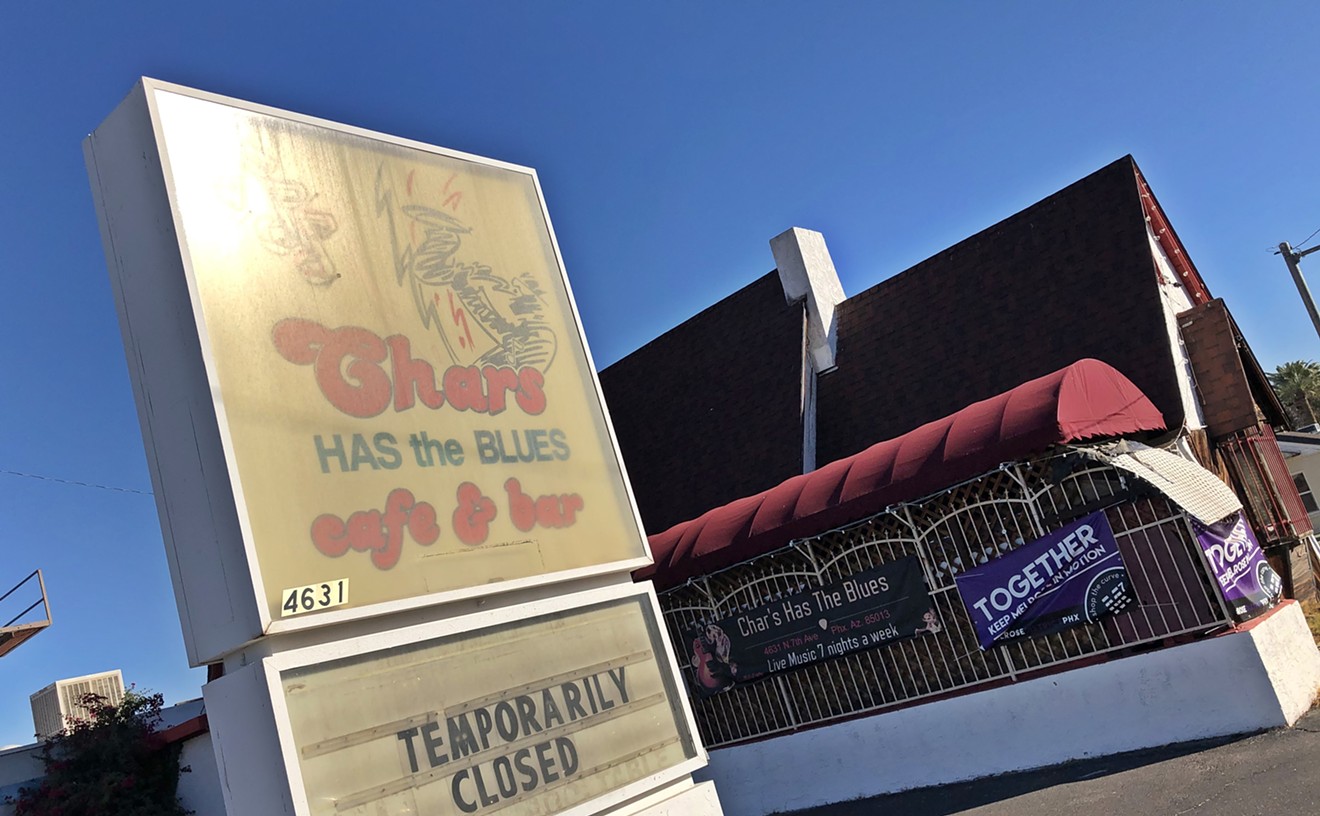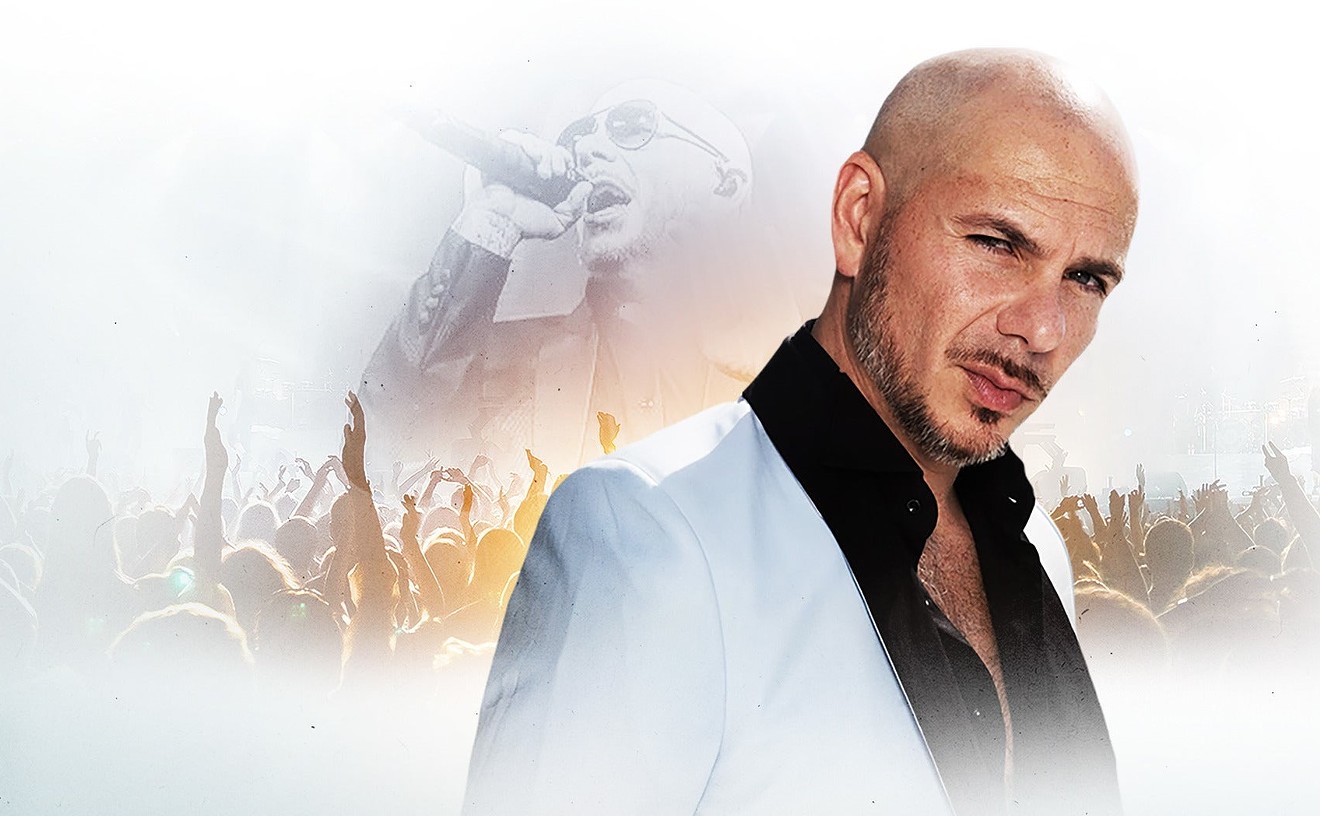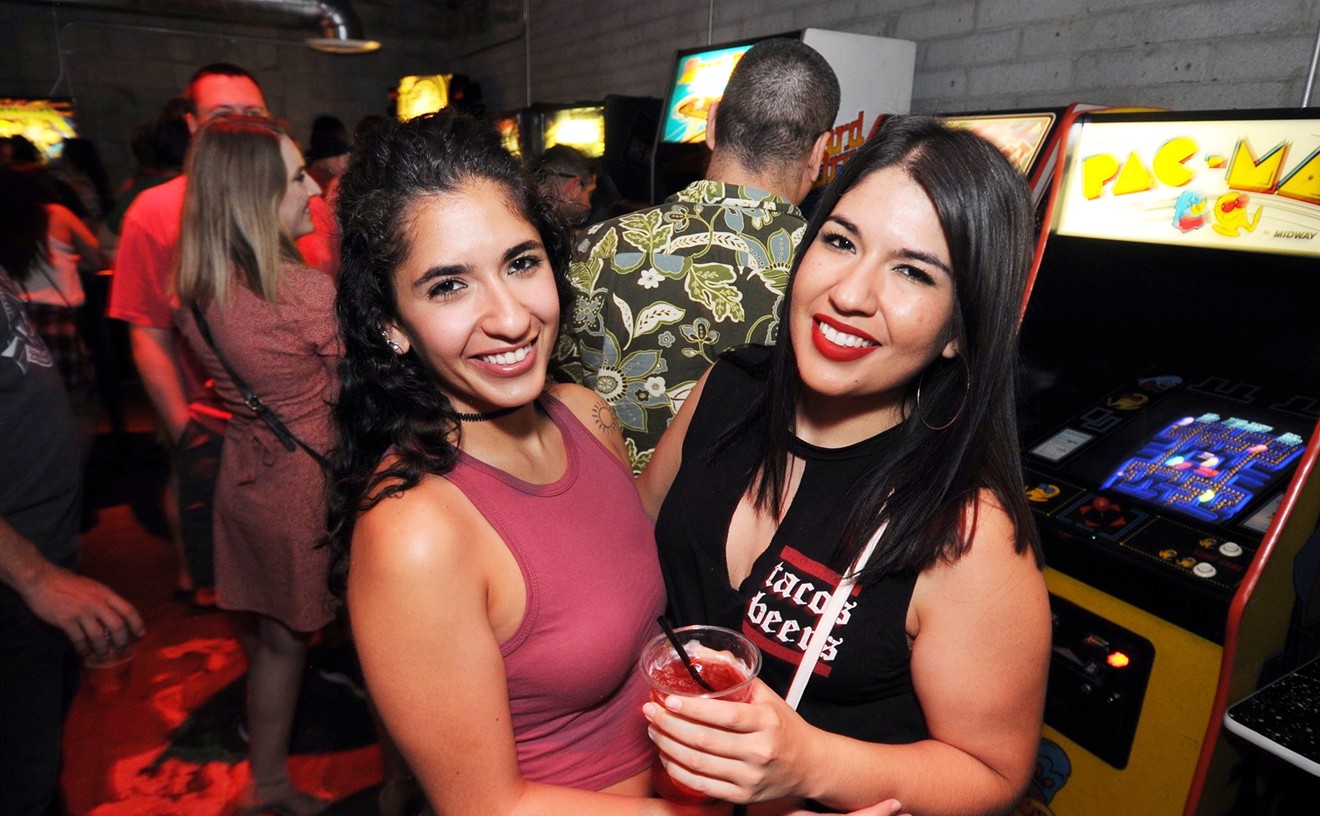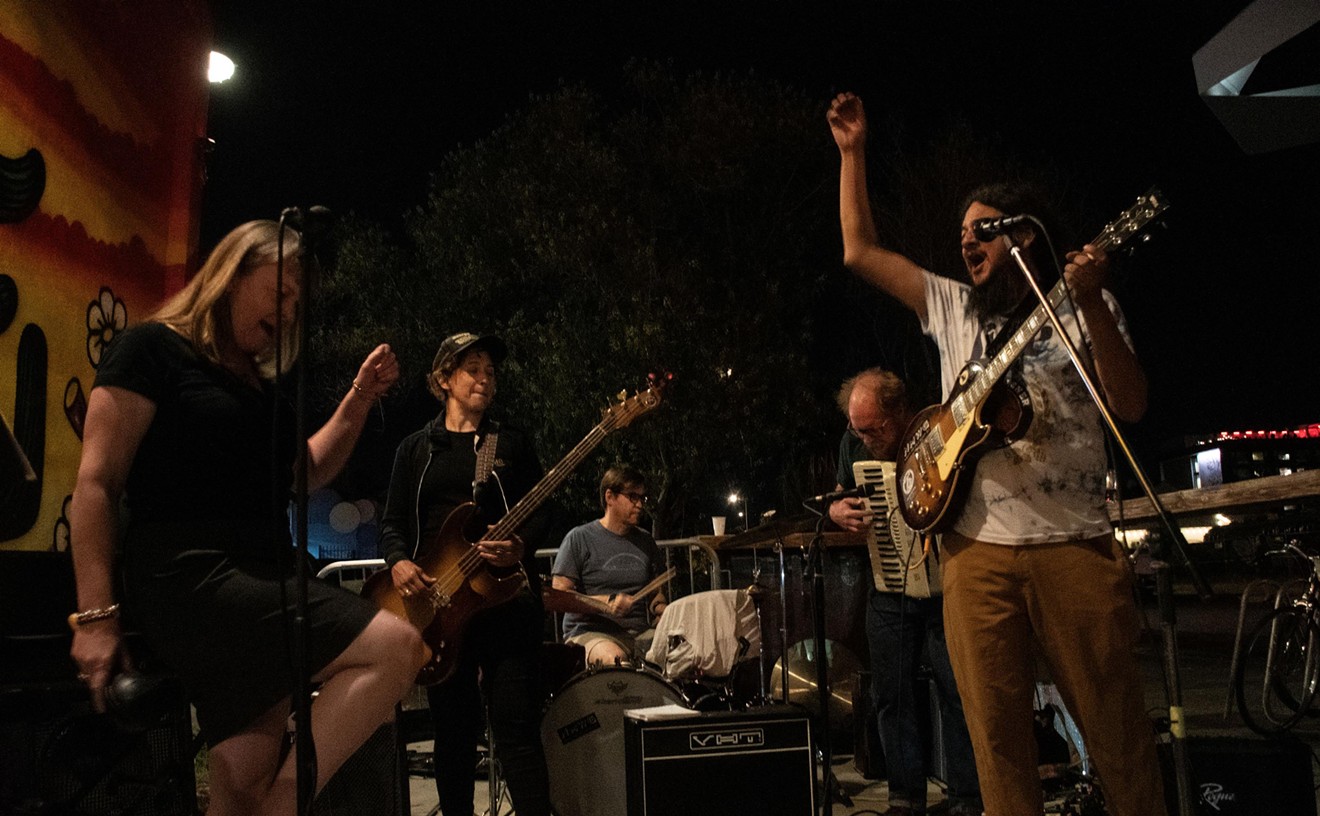Kaleb Hargous has been rapping about his bisexuality under different monikers since high school. At one point, he was making music
Although they've only been playing for seven
The EP covers a variety of sounds, as BOYCOTT! can't really be put into a musical box. Hargous, Wilson, Peterson, and
BOYCOTT! have been playing shows around The Valley, but have taken a brief break as members attended to other things during June and July. Their first single is due in August, preceding Fruit Cake, which is slated for a fall release. But that's not the end of their 2018 goals — the band is also in the process of planning a West Coast mini-tour with other local bands and a short documentary before heading back to the studio in January 2019 to record a full-length project.
BOYCOTT! spoke to Phoenix New Times about their upcoming debut EP, their musical process, and what they've learned from playing in a queer band. The conversation has been edited for length and clarity.
Phoenix New Times: Kaleb, can you tell me about the history that you have with this project and making music?
Kaleb: Around college, I met Christian, and we did this project called Ded Gae, and I created an EP with a man named Izayah Dutcher who is an incredible violinist. He did a lot of the production, and we kind of collaborated on the entire project. We dropped that on Spotify and about two years after that Christian and I linked up again — he did the guitar on "Amy" on that EP — and after that, he showed me Jeff and Andrew, and we formed BOYCOTT!
How would you guys describe your sound?
Christian: The main thing I have always pushed for in any group is if we get reactions from people and they're like "Wow, I can't really put that into a genre," I feel like that's the right path we should be on. What we try to do in this band is be a melting pot of different styles and influences and aesthetics.
Kaleb: We all have very different influences, too. Jeff's into rock, I'm very into
How does your sexual orientation/queerness play into the music you make?
Kaleb: I would say that I've become a lot more comfortable with being feminine, which growing up is something that I was not allowed to do. I tried to join theater in high school and my stepdad called me a fag and really derogatory terms. So, I started to embrace it, and be like "this is who I am, and I'm not going to back out of that." So, I've become a lot more feminine, and I started feeling comfortable wearing makeup on
What does your identity mean to you?
Kaleb: That's a tough question. I really don't know how to answer that question.
Christian: Identity to me means something personal to you that can never be taken away despite your surroundings.
Is the queer angle something you guys take with you? Why do you think these stories are important to
Jeff: I support rights for all. That's what the music is empowering other people to do, to just accept other people for who they are. There's not a need for all of these shootings and stuff. Even though I'm straight, I still support rights for everyone.
Christian: I think this country, in general, has a problem with complacency outside of their demographic. So, I think with Kaleb's lyrics, it's encouraging people, even people like [Jeff, Andrew, and I,] who are not part of the queer community, we can still advocate. We can still be open, and informed of these events that are happening, and I think that Kaleb's lyrics encourage our listeners to do the same.
Andrew: Just to piggyback off of what Christian said, I think that all four of us really can agree that living our everyday lives in Phoenix, Arizona, we've all seen our fair share of discriminatory actions against anyone, much more so the LGBT community. Even though we might not be gay ourselves, we have all experienced or seen or been around these discriminatory
Do you think you've learned something from playing in this group?
Jeff: I think
Kaleb: A lot of the people who go to the show, especially like a lot of my friends that are
What are some of your LGBTQ+ influences, either musically or in the way you present yourself?
Kaleb: Frank Ocean, I just have to reiterate one more time, is my favorite artist of all time. Ezra Furman is another really big one. When I heard him for the first time I was blown away and that was honestly a huge influence on this band. A lot of me feeling comfortable singing — especially on his older stuff, he's not always on key, and his voice is scratchy, and it's not the conventional pop "good" voice, and David Bowie is similar. That gave me confidence, listening to those two. So, David Bowie, Ezra Furman, and Frank Ocean, for sure: Frank Ocean for his lyricism, David Bowie for his appearance and raw, "don't give a fuck, this is what I look like, this is who I am," and Ezra Furman for his voice, vocal talent, and who he is.
Has the Phoenix music scene been accepting towards the band? Have you guys gotten any blowback?
Kaleb: One of the shows we did there was definitely people in the audience who gave me kind of weird looks after they performed. When we were performing — well, one of our songs, "Bicycle," says "I ride dicks and I love that shit," so we're in your face — there was a lot of people that looked, and were like, "not in my Christian bar." But, other than that I think that people have been really cool. We've been playing a lot in the college area, so we haven't really stepped out of that. But, I'm sure we're definitely going to. My family, once they hear the music, is going to be extremely against it.
Kaleb: They've only heard
Christian: I'm actually really scared to show my grandparents our music. I'm scared they're going to pull out one or two lines that they hate instead of analyzing the songs on a deeper level.
Kaleb: I'm kind of excited for that. I'm excited to make people uncomfortable to bring up conversations that people are normally afraid to have. That's why I try to be very blunt with a lot of this stuff. There's obviously some lines that are deeper, and not as in your face, but I think the bluntness is important.

